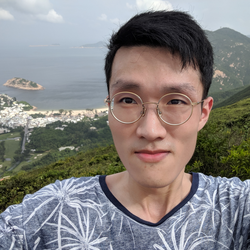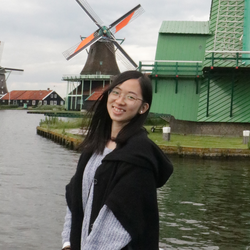Student sharing - Video Series of “Stay Home Science Experiment: Primary School”

Cultivating Curiosity of the Younger Generation
Leung Wai Hong, Willis
Postgraduate Diploma in Education in Physics
The suspension of schooling caused by the COVID-19 pandemic posed a huge challenge to teaching and learning. Leung Wai Hong, Willis, a Physics Major from the Postgraduate Diploma in Education programme believes that students should not be limited to learn only through reading textbooks and listening to teachers’ instructions. The disruption of face-to-face teaching further reinforced his idea that real-life observation and hands-on experience from experiments are vital in helping students to understand scientific theories and cultivating their curiosity. Hence, when Ms Promail Leung, Director of the Faculty’s School-University Partnerships Office and Senior Lecturer in the Academic Unit of Teacher Education and Learning Leadership, introduced him the Video Series of “Stay Home Science Experiment: Primary School”, he immediately became interested in contributing to the project. He regarded the project as an opportunity to sustain students’ learning and their enthusiasm while staying at home.
Willis started with the intention of creating a piece of equipment for students to explore on their own. That was when the idea of a “homemade ray box” came to his mind. Students can investigate the path of light ray and discover phenomena of reflection and refraction using the ray box.
There were two major challenges in producing the video. First, primary students may have limited prior knowledge of light. Therefore, Willis needed to explain more difficult science concepts using simple terms. Besides, the video should be short and concise to avoid overloading students cognitively. The second challenge was related to filming and editing as those were completely new to him. Choosing the right camera angle was important so that the whole experimental set-up could be shown clearly, and students could replicate the process. He was grateful that Ms Leung worked patiently with him throughout the production. She advised him on ways to piece different parts together to make a more engaging and coherent video.
The production of the video evoked Willis’ memories of doing home experiments when he was little. He used to play with objects like magnet and paperclips to try to understand the concept of magnetism; matches for fire and light. “I was inspired by my own experience, and I’m sure that we can all learn some Physics concepts from every household object. Hence, I believe that there is much room for teachers to get innovative, so as to help students learn science at home and adapt to changes during these difficult times,” Willis said.

The Fun of Learning is Everywhere
Law Kwan In, Jessica
Bachelor of Education and Bachelor of Science
To sustain students’ learning at home during the school suspension, some of the Faculty’s student teachers developed a series of interesting and safe experiments for primary school students to conduct with simple materials at home. Law Kwan In, Jessica from the Bachelor of Education and Bachelor of Science programme was one of the contributors to the Video Series “Stay Home Science Experiment: Primary School”.
In this series, Jessica produced two sets of videos and user guides: one studying the influence of enzymes on the gelation of gelatine solutions, and the other focusing on the dissolving process of eggshell in acid. Through these videos, she hoped that students would start to pay more attention to science in daily life, as science does not only happen in the laboratory. She therefore chose food ingredients that could easily be found in the kitchen or the supermarket as the materials for the two experiments. One experiment featured fruit and gelatine, the key ingredient in making jelly, while the other featured eggs. “Science is all around us” is the key message that Jessica wanted to convey, to encourage students to become more curious about the importance of science in our daily lives.
Jessica was grateful for the support and guidance from Ms Promail Leung, Director of the Faculty’s School-University Partnerships Office and Senior Lecturer in the Academic Unit of Teacher Education and Learning Leadership. At first, Jessica did not know too much about the cognitive level of primary students, as she was mainly trained to teach Science in secondary school in her programme. After the discussion with Ms Leung, she realised that primary students would need more scaffolding and guidance. For example, it would be better to provide some instructions on “how to observe”, instead of merely asking students to “observe the experimental results”. She therefore specifically asked the viewers to use their five senses or to put the egg under a light in order to observe the eggs without eggshell. She was reminded that skills needed to be cultivated under guidance, and she said she would keep that in mind in her future teaching career.
“I am glad to contribute to this video series, which has equipped me with precious experience of teaching science to primary school students. I hope they will enjoy the videos and realise that the fun of learning is everywhere,” added Jessica.
